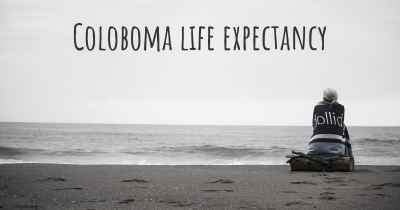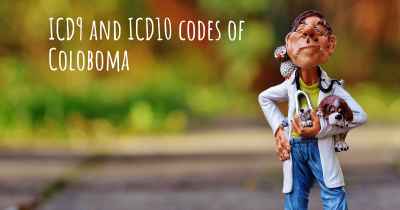What is the history of Coloboma?
When was Coloboma discovered? What is the story of this discovery? Was it coincidence or not?

Coloboma is a congenital eye abnormality characterized by a gap or cleft in one or more structures of the eye, such as the iris, retina, choroid, or optic disc. The term "coloboma" is derived from the Greek word "koloboma," meaning "curtailed" or "defective." This condition can affect one or both eyes and may vary in severity, ranging from a small notch to a large missing portion of the eye.
The history of coloboma dates back to ancient times, although the condition was not well understood until more recent centuries. The earliest known reference to coloboma can be found in the Ebers Papyrus, an ancient Egyptian medical document dating back to around 1500 BCE. The papyrus describes various eye diseases and their treatments, including a condition resembling coloboma. However, the true nature of coloboma remained a mystery for many centuries.
It was not until the 19th century that significant advancements were made in understanding coloboma. In 1818, the renowned Scottish ophthalmologist James Wardrop published a comprehensive study on coloboma, describing it as a congenital defect of the eye. Wardrop's work laid the foundation for further research and exploration of this condition.
Throughout the 19th and early 20th centuries, several ophthalmologists contributed to the understanding of coloboma. In 1859, the German physician Albrecht von Graefe provided further insights into the condition, identifying coloboma as a result of incomplete closure of the embryonic fissure during eye development. This theory, known as the "fissure closure theory," became widely accepted and formed the basis for subsequent research.
In the mid-20th century, advancements in medical imaging techniques, such as ultrasound and ophthalmoscopy, allowed for more accurate diagnosis and classification of coloboma. These techniques enabled ophthalmologists to visualize the internal structures of the eye and identify the specific areas affected by coloboma.
In recent decades, genetic research has played a crucial role in understanding the underlying causes of coloboma. Scientists have identified several genes associated with coloboma, including PAX2, CHD7, and SOX2. These discoveries have provided valuable insights into the molecular mechanisms involved in eye development and have helped improve genetic counseling and early detection of coloboma.
Today, the management of coloboma involves a multidisciplinary approach, including regular eye examinations, vision correction, and, in some cases, surgical interventions. Treatment aims to address any visual impairments and prevent potential complications associated with coloboma, such as glaucoma or retinal detachment.
In conclusion, the history of coloboma spans centuries of medical observations and research. From ancient Egyptian texts to modern genetic studies, our understanding of this congenital eye abnormality has significantly evolved. Ongoing advancements in medical technology and genetic research continue to enhance our knowledge of coloboma, leading to improved diagnosis, treatment, and support for individuals affected by this condition.








